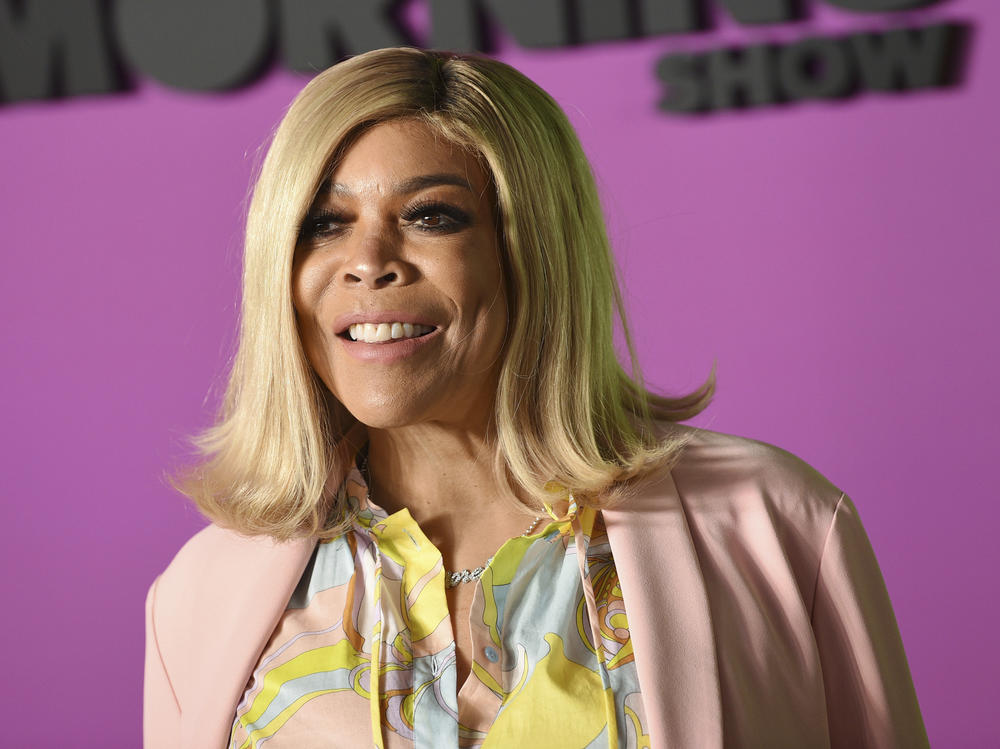Section Branding
Header Content
Wendy Williams' dementia was blatantly exploited by the docuseries, a complaint says
Primary Content
The Lifetime documentary Where Is Wendy Williams? included scenes where the former talk show host being erratic, confused and forgetful. Yet, filmmakers credited Williams, who suffers from dementia and aphasia, as an "executive producer" of the docuseries.
Now, in a newly unsealed complaint, Williams' guardian Sabrina Morrissey argues that due to her medical condition, Williams did not have the capacity to consent to the film and would not have approved of the way she was depicted.
"This blatant exploitation of a vulnerable woman with a serious medical condition who is beloved by millions within and outside of the African American community is disgusting, and it cannot be allowed," read the complaint filed on Feb. 21 in New York State Supreme Court.
The four-episode series, which aired last month, chronicles Williams' life after the end of her hit daytime TV show The Wendy Williams Show and her struggles with alcohol addiction, serious health ailments, and financial issues.
The complaint against A&E Television Networks and Entertainment One Reality Productions also accuses the filmmakers of not properly communicating the project with Williams' guardian or the court presiding over the guardianship — adding that no one acting in Williams' "best interest" would have allowed such a film to be aired.
Williams was diagnosed with primary progressive aphasia and frontotemporal dementia in May 2023, a few months into filming. Her diagnosis became public last month.
The documentary's executive producer Mark Ford said the film crew would never have "entered into" the project if they knew Williams had dementia, adding that "Wendy had good days and she had bad days."
"We hope people get to the end of it and understand why we decided to finish the project with Wendy, her family and her management all supporting it," he said in an interview with The Los Angeles Times.
In response to the complaint, A&E said in a statement "We look forward to the unsealing of our papers as well, as they tell a very different story."
Entertainment One Reality Productions did not immediately respond to NPR's request for comment.
Mysterious company signed docuseries contract
Williams was placed under temporary financial guardianship in May 2022 after her bank, Wells Fargo, raised concerns that she was an "incapacitated person" and the "victim of undue influence and financial exploitation."
A few months later, in January 2023, Entertainment One, Williams and a company called The Wendy Experience, Inc. signed a contract agreeing to the documentary.
According to the complaint, Williams' guardian Morrissey claims she was unaware of the contract at the time and would never have agreed to the contract, which included terms like Williams having no control over the final result and Williams waiving all doctor-patient privilege during the project.
It is also unclear who created and was the CEO of The Wendy Experience, Inc., the complaint says.
The company, which formed a month after Williams' guardianship, was not approved by Morrissey. The complaint argues that the signature of the CEO is "not clearly legible," yet "highly distinguishable" from Williams' signature, suggesting that the CEO is not Williams but rather someone else.
Morrissey is asking the court the nullify the contract.
Williams' guardian says she was misled to believe the docuseries would be "positive and beneficial" to Williams
In a separate court filing, Morrissey says she initially allowed the film project to go forward on the basis that it would be "positive and beneficial" for Williams' legacy. Morrissey also believed she and the court would be able to review and have final say of any footage before it was released.
Instead, Morrissey says the docuseries' trailer was made public without "prior warning and without seeking or obtaining prior approval" from her or the court.
"I was horrified by the release of the trailer and its contents," Morrissey said in the court filing obtained by NPR this week.
Williams' guardian alleges the trailer inaccurately portrays the TV star as a "drunkard and laughing stock." Morrissey added that she would never have approved the release of the documentary.
Prior to the documentary's release, Morrissey attempted to block the film from being aired. The court approved Morrissey's request, but A&E later appealed the decision. A judge later approved A&E's appeal on First Amendment grounds.

